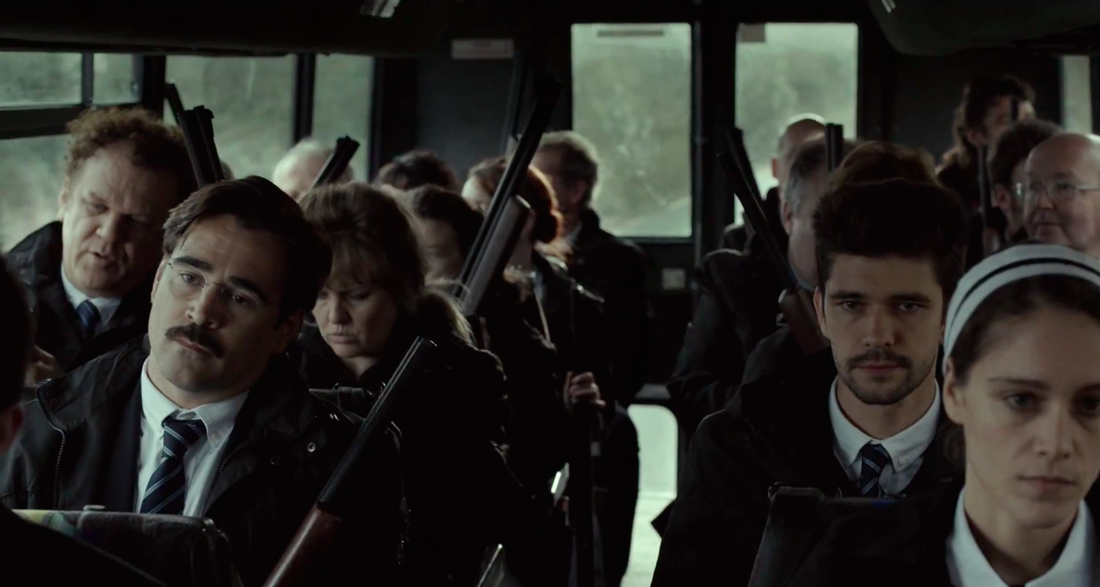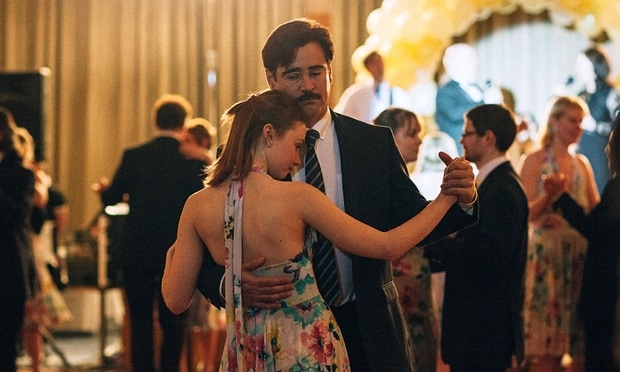We live in a world that encourages romantic and marital partnerships. Our entertainment media usually has romantic subplots, and books and movies focused solely on romance typically do very well. Married couples get legal, economic, and social rewards that couples who are only dating or living together do not. These and other factors contribute to the societal idea that people’s lives are better when they are in a monogamous relationship than seeing several people at once, or not seeing anyone at all. But, what if, instead of just implying that being romantically attached was superior, society directly discouraged singleness - if it offered up an ultimatum: find a mate in a prescribed amount of time, or lose your humanity?
The Lobster (Lanthimos, 2016) operates on this spellbinding premise. Divorced or otherwise single people get shipped off to an upscale hotel designed for the purpose of obtaining a life partner. Once there, they have 45 days to find a compatible mate. If they do not accomplish this objective within the 45-day period, they will be turned into an animal of their choosing. Such a zany, captivating, premise could crumble if mishandled, but, as interpreted by Lanthimos and his team, it’s successful - an unflinching, dark-humored, cynical social commentary on romance and companionship.
An innovative plot can only get a filmmaker so far. The Lobster persists beyond attention-grabbing summary because of its relatability. No matter how far it ventures into the bizarre, it remains true to life. The Lobster creates this effect from the beginning in myriad ways. Casting choice is a significant one. The main players are fringe names – actors who have been working in the industry a long time, but do not have the household presence or star power as, for example, Angelina Jolie and Brad Pitt do in America. Casting big names in a picture is usually a good marketing strategy, but it is not always the best artistic choice. In fact, it can often work against a director’s favor because the audience is unable to detach the stars from their previous roles. The Lobster does not have that problem. It has a wealth of great character parts, and the actors in those roles are well-suited to them.
As highly as I praise The Lobster, I admit it might not be the best film for everyone. If you're a soft-hearted, easily nauseated, animal-loving, blockbuster fan, you might want to pass this one by. However, for those who choose to watch, it will be one of the best films you have ever had the chance to enjoy. The Lobster puts Lanthimos in the same class as Asghar Farhadi - a foreign director with crossover appeal, a talent too good to be hoarded by his home country. His next film, The Killing of a Sacred Deer, comes out next year. Will it be as good as The Lobster? It's too soon to tell, but there's a good chance....
Works Cited
McGovern, Joe. “The Lobster: Colin Farrell shares his (spoiler-free) thoughts on the film’s ending.” Entertainment Weekly. 16 June 2016. http://ew.com/article/2016/06/06/colin-farrell-lobster-ending/ Accessed 26 February 2017.





 RSS Feed
RSS Feed
